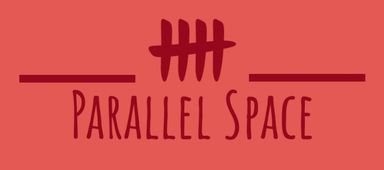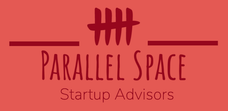Parallel Space Blog #02
Decentralized Funding of Science
An alternative path to our civilization’s growth
6 min read – Nov 2022 - By Dr. Axel Schumacher
Science is doomed. At least some scientists feel so. Financing research is difficult, often frustrating, and sometimes depressing. Even more so for financing spin-off projects. The time spent on writing grant application is increasing every year with chances dropping simultaneously. Some lab scientists spend 50% of their time writing grant applications while many group leaders do it almost all the time, without having any time for actually doing research. On the other hand, humanity needs science, and it should be in the interest of modern societies to finance their researchers to guarantee growth and innovation for the greater good. However, with more and more scientist working at various research organization, we observe a perpetual funding disequilibrium, because our species generates an ever-increasing supply of scientists vying for a finite set of research resources. Famous scientists have an advantage because they can easier get new funding which will lead to more studies performed, more research output, more staff scientists hired, more publications, and hence, more funding. It’s an upward spiral that causes the bulk of the research funding going to only a few well-known researchers, leaving most scientists in difficult conditions.
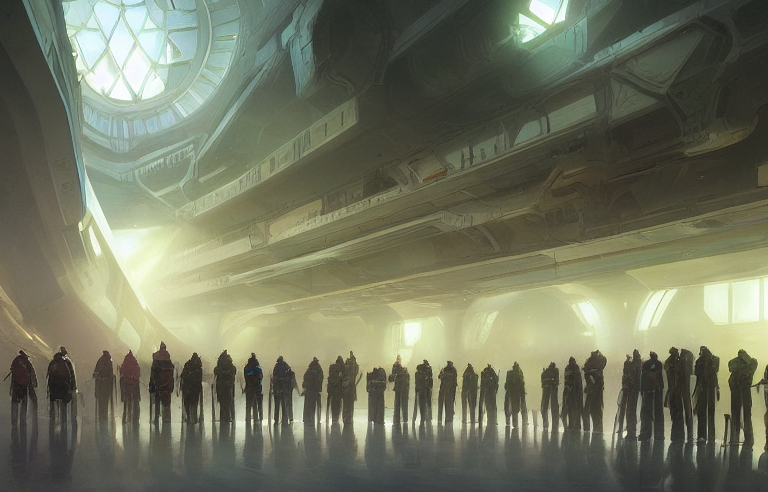
A lack of sophisticated start-up platforms at academic research institutions.
The situation gets even worse if scientist want to start companies. There are few funding resources and there is a lack of academic support systems that help researchers to monetize their discoveries. Often, the new entrepreneurs must find their luck in partnering with industry — an inherent conflict of interest. Nowadays, too many research projects are funded either by big pharma or the food industry. Normally, a straightforward way to ameliorate funding problems would be for governments to simply increase the amount of money available for research efforts. But we all know, this is not happening. Science takes time and is not high on the more and more populist agenda of modern politics. It is evident that – in addition to government funding – we need alternative, more modern and innovative funding schemes – and new ways of doing science altogether. Science is enormously valuable for society and deserves ample funding. One way to improve the lives of scientists looking for funding could be Decentralized autonomous organizations (DAOs).
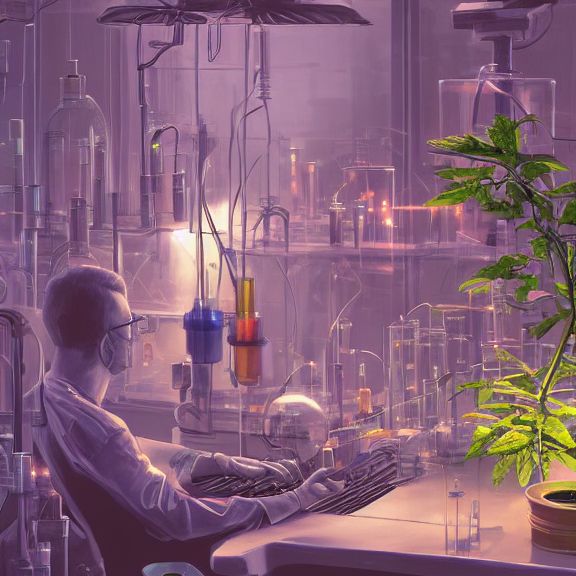
DAOs – a new form of science funding
A new trend in science is Decentralized science (DeSci), a movement to rethink the global scientific research ecosystem using blockchain technology. DeSci adopts the Web 3.0 model of decentralized ownership, enabling fair and equitable scientific research funding. DAOs are a critical component to DeSci’s framework for introducing funding opportunities for scientists and entrepreneurs. They leverage automated, tamper-proof ‘smart contracts’ to offer a cutting-edge alternative to traditional funding agencies. Their end goal is to incentivize innovative research, IP and data sharing, as well as open science. Instead of applying for grants from funding bodies, like the NIH, DFG, or NIHR, a decentralized community crowdsources the funds for research. It is also the researchers themselves and their supporters who own any value produced, not research institutions or companies.
What is Web 3.0?
Web 3.0, also known as Semantic Web is the third generation of the World Wide Web. Currently a work in progress, it is a vision of a decentralized and open Web with greater utility for its users. Artificial Intelligence and Machine Learning should enable computers to analyse data in the same way that humans do, which aids in the intelligent generation and distribution of valuable content according to a user's specific needs. Decentralization is at the core of Web 3.0, with information stored in multiple locations simultaneously. Web 3.0 smart apps are built on blockchains, decentralized networks of numerous peer-to-peer nodes (servers), or a hybrid of the two. These programs are known as decentralized apps (DApps), where network participants (e.g. developers, researchers etc..) are rewarded for delivering the services to establish a stable and secure decentralized network. Web 3.0 will also be trustless, meaning the network will allow participants to interact directly without going through a trusted intermediary. The last pillar is that Web 3.0 is permissionless, meaning that anyone can participate without authorization from a governing body.
The idea of Decentralized science is not new. In 2016 – in my book “Blockchain & Healthcare Strategy Guide”- I proposed the formation of a global pharma DAO, where researchers would share their data, protocols, and IP for building a massive collaborative pharmaceutical company, owned by all. I called it Digital Identity at that time. The idea was that people would be empowered to contribute work or funds to become owners of the DAO intellectual property by purchasing crypto tokens. A participation could be either through contribution of funds, valuable research data, or IP assets like patents. Ownership of tokens would then allow to take part in decision-making and governance of the DAOs research and govern its data repositories and IP portfolio. Since then, many science DAOs were established, some of them in the structure that proposed at that time.
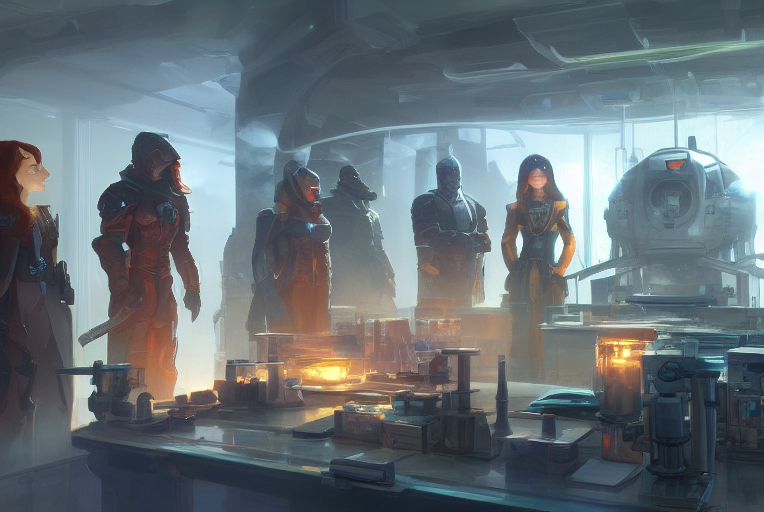
Case Study 1: The Science DAO*
Although still in early development, the Science DAO, a decentralized think tank and accelerator fund, and incubator engine, aims to empower inventors, entrepreneurs, and institutions to collaborate and make informed investments in a wide spectrum of technologies and life sciences. The Science DAO is currently focusing on three areas: 1.) Health and environment, 2.) Computing and Technology, and 3.) Natural Sciences. In The Science DAO network, NFT sales would fund a project with each invention is planned to have an NFT created to represent that fundraiser. The NFT utility would be in the form of offers, such as early purchasing access for market-ready products or having access to privileged series A venture rounds. Members of The Science DAO will be able to submit projects for funding. Although not all projects will be chosen, projects that don’t receive funding directly from the DAO will also have the potential to garner support from individuals within the DAO.
The massive advantage of Science DAO’s
DeSci’s DAO-based model engages distributed research communities to decide on projects and funding. As such, DAOs eliminating gatekeeping and bureaucratic hurdles that hinder free scientific research. Because its open structure and decentralization, everyone can – in theory- participate in DAOs. It allows venture capital inflow, industry, and government participation as well as capital inflow from small private investors with limited capital to support scientific research.
Some of the main advantages of DAOS is the ability to tokenize assets (which can be ideas, protocols, IP, data, or infrastructure). Tokenization breaks down an asset into fractions that individuals can own. A core functionality of tokenization is the use of non-fungible tokens (NFTs) that provide greater accessibility, transparency, accountability, and fractional IP ownership. Scientists can retain complete control over their research data, avoiding manipulation, censorship while opening new avenues for data monetization. Emerging DeSci platforms enhance these abilities further, opening newer avenues of improving science and starting spin-offs.
Ideally, modern DAO funding systems should be able to:
- Provide long-term funding schemes as the biggest discoveries take many years
- Taking pressure off scientist to publish at all costs (which breeds poor science and encourages researchers to overhype their work)
- Provide a short route to funding and easy application processes
- Providing support for high-risk projects, not only those with guaranteed but lame publications
- Change how grants are awarded, putting more emphasis on innovative ideas, the greater good, monetization, and risk.
- If the money comes from industry, it needs to be pooled to avoid conflict of interest
- Provide additional support in the form of know-how, methods, infrastructure, and IP
- Provide incentives to scientist for sharing their raw data in ways that are easily accessible and digestible for those who may want to replicate their findings
Case Study 2: Opscientia
Opscientia (Opsci), is building a network of knowledge foundries. It brings together citizen science communities while providing a framework for incentivizing their contributions towards collaborative research. The Opsci community is actively building the rails for open science research workflows that are findable, accessible, interoperable, and repeatable. Active working groups include decentralized file storage for research data management, verifiable scientific reputation, game theoretic peer review, and innovating on the scientific paper.
Overall, DAOs can increase science quality as they can increase transparency, offer rewards based on the rigor of the research methods, and not so much on the direct outcome. Also, researchers should get rewards and recognition simply for advancing science broadly through informal idea sharing, rather than only getting credit for what they publish in paywall science journals. Open Science and DAO network resources (AI, machine learning algorithms etc) will enable participants to produce faster and more relevant research results in a host of areas like drug development and precision medicine. Patients will be able to participate actively in drug development, for example for rare diseases, but, unlike a typical fundraising group, they can provide them a monetary stake in the outcome.
Case Study 3: VitaDAO
VitaDAO is democratizing longevity research by adopting a community-driven funding model for early-stage research projects commercializing longevity therapeutics in an open and democratic manner. For instance, it helped a group of Danish researchers raise funds to repurpose existing drugs as anti-aging drugs. As an open cooperative “that anyone can join”, VitaDAO aims to acquire, support and finance new therapeutics and research data in the longevity space. The collective will directly hold legal IP rights to these projects and intends to develop a portfolio of assets represented as NFTs. VitaDAO aims to empower the public to contribute work or funds to become owners of its IP by purchasing “VITA tokens”. This could be either through contribution of funds, valuable research data or IP assets. Ownership of VITA tokens allow to take part in decision-making and governance of VitaDAO’s research, indicate support for specific initiatives and govern its data repositories and IP portfolio.
DAOs can empower scientific truth, for example, by providing incentives for researchers to replicate results, fighting a common problem in science called "crisis of irreproducibility." Most studies published never had been subject to replication at all. One reason is that is it unsexy to just replicate results and there is no incentive for journals to publish these studies, discouraging scientists from checking each other's work. Other methods that could be enforced by DAOs include more robust sharing of methods and protocols, increasing transparency and data sharing (for example with platforms like HLTH Network), as well as new forms of collaborative peer review. The researcher can then reply to what the group of reviewers identify as the most important issues, rather than facing the biases of individual reviewers, moving research projects forward much faster. Examples of Science DAOs are BioDAO (biotech ecosystem), Cherubs DAO (impact projects), CureDAO (precision medicine), Frontier DAO (space exploration, energy & climate solutions), HairDAO (hair loss research), LabDAO (biomedical), NeuraDAO (neuroscience), Obscientia (data), PsyDAO (psychedelics research), Research Collective (DAO research), Valley DAO (synthetic biology), LongevityDAO (longevity), and VitaDao (longevity), among others. In addition, there are other decentralized initiatives such as decentralized Biotech, decentralized funding of science projects, decentralized science foundations and institutes, and decentralized science publishing organizations.
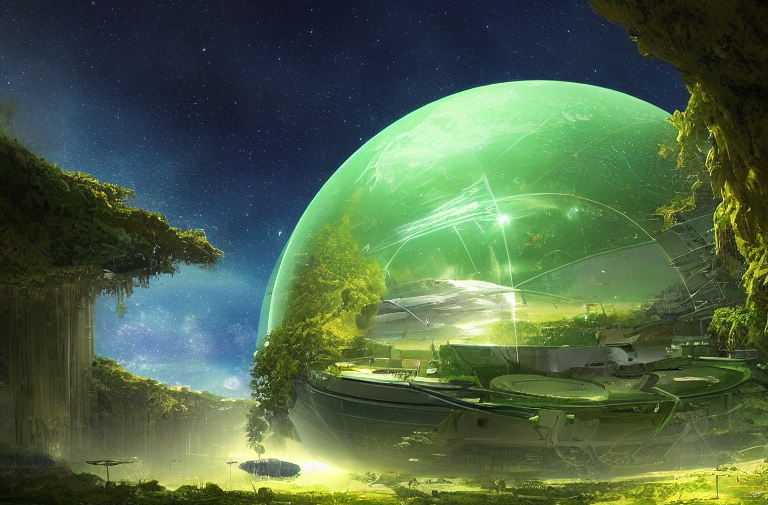
Conclusion
While still early in development, the first science DAOs are emerging across the planet. These funding initiatives have the potential to fixe many funding problems that researchers and science-based start-ups face. While these DAOs will take time to mature, much like the scientific process itself, and not all will survive, the framework of DAOs will provide valuable new solutions to the science and R&D funding ecosystem. If implemented properly, science DAOs can hold the key for a brighter future for humankind.
*Note: This is just an overview about science DAOs, not an endorsement to invest in them.
